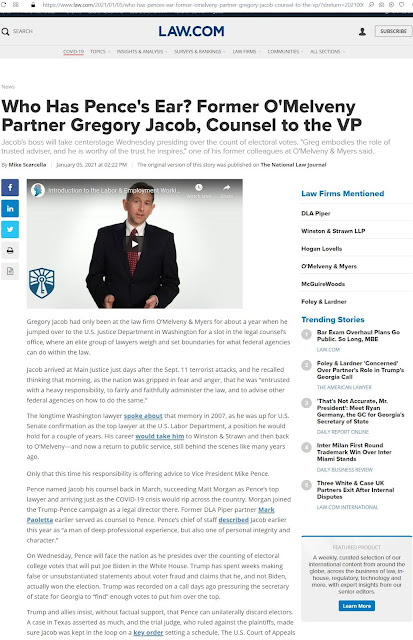Law is a dishonest field. I know that's a harsh thing to say about a profession, so please let me explain by looking at what lawyers do on a case. First, they sift through the evidence and categorize it into two buckets: evidence that helps their client and evidence that hurts. Then they do the same thing with laws; they find the relevant statutes, precedents and policies and split them into two buckets: those that help their client and those that hurt. Finally, they use rhetorical techniques to try and hypnotize a judge or jury into appreciating the facts and laws that help their client, and diminishing those that hurt their client.
Open any two sets of briefs in a case or watch any oral argument and you'll see this: two diametrically opposed takes on how the evidence and laws should be applied to decide the matter. And remember, the side the lawyer took among these two opposing views wasn't necessarily determined by the truth, or even what the lawyer believed. Rather, it was a function of who paid them. If the other side had hired the lawyer, he or she would be saying the exact opposite. So in that sense, lawyers are paid liars.
I don't mean to minimize how hard it is to be a lawyer. It can take an incredible amount of work to find those facts and laws, and to craft those arguments. They might have to look through millions of documents, a tedious and painstaking effort. Then there's the task of putting it all together, which requires a talent for communication and rhetoric. It's also work that needs to be done, because unfortunately there are disputes that don't get resolved without a court. But still, if that's what you do all day, every day, you are training your brain to think in a certain way. You're training it to cherry-pick and spin.
In contrast to the legal profession, there are professions where cherry-picking and spinning should play no role. Science is one of them. Earlier this year, these two worlds came together when someone tried to use the lawyer's thought process in science. The highly esteemed law professor Richard Epstein tried to use his training as a lawyer to come up with a solution to COVID. You can see how that turned out in this New York Magazine article, or in this podcast.
Some commentators cannot understand why the nation's infection and mortality rates are so high, and they blame Mr. Pence's mismanagement of COVID. I personally don't want to go that far. We don't know what would have happened in an alternate world with different leaders and counselors. But Mr. Pence did seem to spend a lot of time cherry-picking and spinning.


